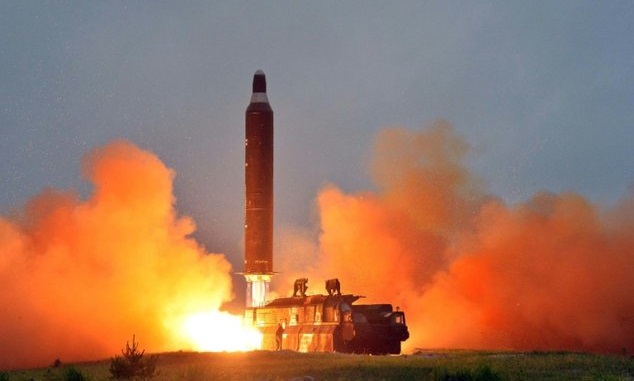
United Nations, United States | AFP |
North Korea is flouting tougher new UN sanctions with more ingenuous tactics, circumventing trade bans by relying on middlemen and front companies, notably in Malaysia and China, a report by UN sanctions experts says.
The 100-page report, obtained by AFP, confirmed that North Korea’s two nuclear tests and 26 missile launches last year had allowed Pyongyang to reach “technological milestones in weapons of mass destruction capability and all indications are that this pace will continue.”
Diplomats, missions and trade representatives have been enlisted in the effort to step up sanctions-busting.
The panel has notified Uganda that the North Korean military attache in Kampala was trying to clinch military deals in third countries, such as South Sudan.
Four North Korean officials under UN sanctions reside in Syria, two others in Iran and two others in Egypt, the panel said, recalling that under UN resolutions they should be expelled.
Security Council resolutions not being fully implemented
The Security Council has adopted two resolutions imposing a raft of new sanctions on North Korea, banning minerals exports and restricting banking, but the panel said implementation by UN member-states “remains insufficient and highly inconsistent.”
North Korea “is flouting sanctions through trade in prohibited goods, with evasion techniques that are increasing in scale, scope and sophistication,” said the report sent to the Security Council last week.
The sweeping new sanctions were aimed at depriving Kim Jong-Un’s regime of hard currency revenue needed to finance weapons programs, which the Security Council has said pose a threat to world security.
But the experts concluded that North Korea’s “circumvention techniques and inadequate compliancy by member-states are combining to significantly negate the impact of the resolutions.”
Only 76 out of 192 countries have reported to the United Nations on steps they are taking to uphold the sanctions, which are mandatory.
China, Pyongyang’s main trading partner and ally, last week suspended all imports of coal from North Korea for the remainder of the year to shore up its compliance with the sanctions resolution.
Arms shipments seized
In July last year, an air shipment of North Korean military communications materiel sent from China was intercepted in an unnamed country, en route to Eritrea, the report said.
The items were sold by Glocom, a Malaysia-based front company for North Korea’s Pan Systems firm, which the panel said is operated by Pyongyang’s intelligence agency.
The company has suppliers in China and an office in Singapore.
“This case demonstrates the increasingly sophisticated nature of evasion of sanctions by the Democratic People’s Republic of North Korea and illustrates important and previously unknown trends,” said the report.
North Korea “was able to establish a company in a third country, building up significant international recognition, including through participation in prominent regional arms fairs and by selling high-end arms and related material in multiple countries,” it said.
The panel also investigated Egypt’s seizure in August last year of a North Korean vessel, the Jie Shun, carrying 2.3 tonnes of iron ore and 30,000 rocket-propelled grenades. The report did not specify the final destination of the shipment.
A bill of lading showed the North Korean-made arms were falsely described as assembly parts for underwater pumps and that it originated from China.
North Korean companies and banks on the UN sanctions blacklist are continuing to operate “by using agents who are highly experienced and well-trained in moving money, people and goods, including arms and material, across borders,” the report said.
North Korean banks have partnered with foreign companies and seek to conceal financial activity by using foreign nationals and entities, it said.
Diplomats, missions and trade representatives have been enlisted in the effort to step up sanctions-busting.
The panel has notified Uganda that the North Korean military attache in Kampala was trying to clinch military deals in third countries, such as South Sudan.
Four North Korean officials under UN sanctions reside in Syria, two others in Iran and two others in Egypt, the panel said, recalling that under UN resolutions they should be expelled.
 The Independent Uganda: You get the Truth we Pay the Price
The Independent Uganda: You get the Truth we Pay the Price





